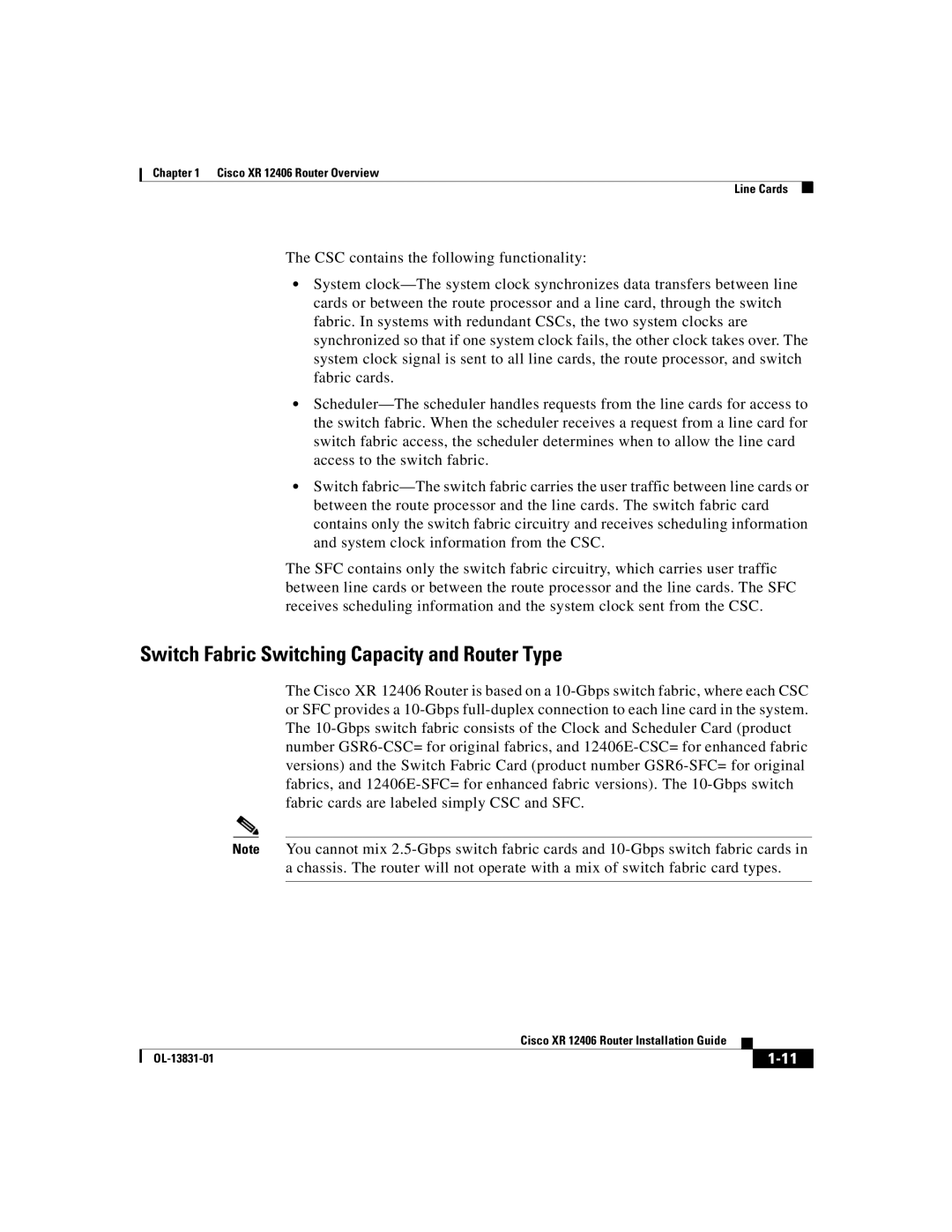Chapter 1 Cisco XR 12406 Router Overview
Line Cards
The CSC contains the following functionality:
•System clock—The system clock synchronizes data transfers between line cards or between the route processor and a line card, through the switch fabric. In systems with redundant CSCs, the two system clocks are synchronized so that if one system clock fails, the other clock takes over. The system clock signal is sent to all line cards, the route processor, and switch fabric cards.
•Scheduler—The scheduler handles requests from the line cards for access to the switch fabric. When the scheduler receives a request from a line card for switch fabric access, the scheduler determines when to allow the line card access to the switch fabric.
•Switch fabric—The switch fabric carries the user traffic between line cards or between the route processor and the line cards. The switch fabric card contains only the switch fabric circuitry and receives scheduling information and system clock information from the CSC.
The SFC contains only the switch fabric circuitry, which carries user traffic between line cards or between the route processor and the line cards. The SFC receives scheduling information and the system clock sent from the CSC.
Switch Fabric Switching Capacity and Router Type
The Cisco XR 12406 Router is based on a 10-Gbps switch fabric, where each CSC or SFC provides a 10-Gbps full-duplex connection to each line card in the system. The 10-Gbps switch fabric consists of the Clock and Scheduler Card (product number GSR6-CSC= for original fabrics, and 12406E-CSC= for enhanced fabric versions) and the Switch Fabric Card (product number GSR6-SFC= for original fabrics, and 12406E-SFC= for enhanced fabric versions). The 10-Gbps switch fabric cards are labeled simply CSC and SFC.
Note You cannot mix 2.5-Gbps switch fabric cards and 10-Gbps switch fabric cards in a chassis. The router will not operate with a mix of switch fabric card types.
| | Cisco XR 12406 Router Installation Guide | | |
| | |
| OL-13831-01 | | | 1-11 |
| | |

